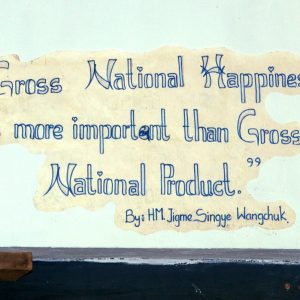“Happiness is not having what you want, but wanting what you have."
That’s a quote from Rabbi Hyman Judah Schachtel. Dr. Schachtel was a Senior Rabbi of Congregation Beth Israel of Houston, Texas from 1943 to 1975. In 1954 Dr. Schachtel wrote the book ‘The Real Enjoyment of living’. The purpose of Dr. Schachtel’s book was to show how man can fill this emptiness with spiritual strength and how to resolve a conflict by reason and understanding. Dr. Schachtel also shared the opinion of acclaimed American psychiatrist Dr. Karl Menninger, which states: "attitudes are more important than facts.” Dr. Schachtel explains that man should not close his eyes to despair, fear, disillusionment and the breakdown of the human spirit. No one can have everything in life but through faith in yourself and freedom, you are able to find a mental World in which you can have everything that really counts for the enjoyment of living, faith, courage, love, wisdom, appreciation of beauty and an inner peace. Mental health and spiritual health are the primal needs of our age because most of us, for many reasons are Maladjusted. Martin Luther King – Proud to be maladjusted – VIDEO. If there is emptiness or conflict within, there can be no true enjoyment of life. I totally agree with the Rabbi and I highly recommend his book. I digged deeper after reading it and ran into Chip Conley, American hotelier, author and founder of the Joie de Vivre Hospitality chain. Conley looks at the Bhutan GNH model and suggests that: “The intangible of happiness is something we should measure, and it’s something that we should actually value as government officials and not the GDP”. Even the ever-brilliant American politician Robert F. Kennedy spoke poetically about the fundamental shortcomings of the gross national product as a measure of well-being: “it measures everything, in short, except that which makes life worthwhile”. CLICK here for the most important bit of the speech. Given at the University of Kansas on March 18, 1968. Full transcript available here. And finally American psychologist Abraham Maslow famously said: “if all you have is a hammer, everything looks like a nail" which comes from his 1966 book The Psychology of Science. Have a look at Maslow’s hierarchy of needs HERE. FACT: The Planet’s and yours scarcest resource is time. So having said that, I think it’s time to ask ourselves a very simple question every day: ”What did I do today?“ and start counting our own intangible happiness! (Photo copyright – Institute of Zorig Chusum – Thimphu’s School of Traditional Arts.)
